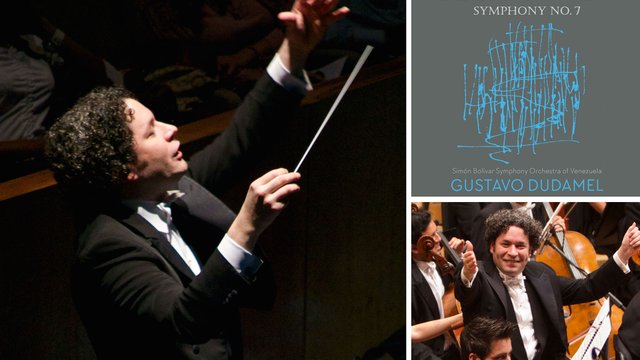

This could be the saddest symphony ever written. The ingredients are all killer: a noble theme, a maniac composer, the crushing depression of going deaf, red wine, brotherhood, massive choirs, a closing melody that a child could sing… what else could you ever want?

Oh calm down, as if we couldn't put this one on the list. But of them all, the fifth has to be considered the greatest: sarcastic and funereal, inflammatory yet somehow managing to toe the party line (the final movement can be seen as both a parody of Stalinist excess AND an example of it: how do you even do that?), this was the symphony that made the young Shostakovich a name, for better or worse. Shostakovich wrote 15 symphonies in total, and he's unique in that almost all of them made an actual cultural impact. The text, taken from a message scrawled on the wall of a Gestapo cell in World War II, dovetails so perfectly with Gorecki's bare-bones accompaniment that it's impossible to imagine a future without it. The concept is innovative and watertight - a soprano sings three texts inspired by themes of parents and missing children over a sparse and simple orchestral backing - but it's the second movement that's proved the real winner.

3 ('Symphony of Sorrowful Songs')Ī recording phenomenon in the 1990s, Gorecki's third is not only popular now: it's destined to be a future classic. It silenced critics who thought Brahms was too musically conservative, it proved to be one of his most emotionally daring works and it sealed his reputation as one of the great masters of the symphony. The fourth and final, composed up a mountain in 1884, has to be the best one though. When the dust had settled from Brahms' first symphony (he was heavily touted in his day as the successor to Beethoven's top-dog status in symphony land), he set about creating one of the most consistent sets of symphonies in history. Like… oh, I don't know, the entire life cycle of the human condition, beginning with the funeral and ending with a triumphant, supernatural return to life, quoting Jewish folk music and ending with church bells. "Hmm, what subject to tackle for my second symphony…? Nothing too ambitious, I'm still establishing myself. What matters is that Berlioz ingested a boatload of opium and wrote one of the most insane pieces of music to come out of the romantic period, while managing to make it a total hit and an artistically sound statement. Is it even a symphony? Isn't it a symphonic fantasy or a tone poem? Does its five-movement structure actually take it a step away from the idiom? It doesn't matter.


 0 kommentar(er)
0 kommentar(er)
